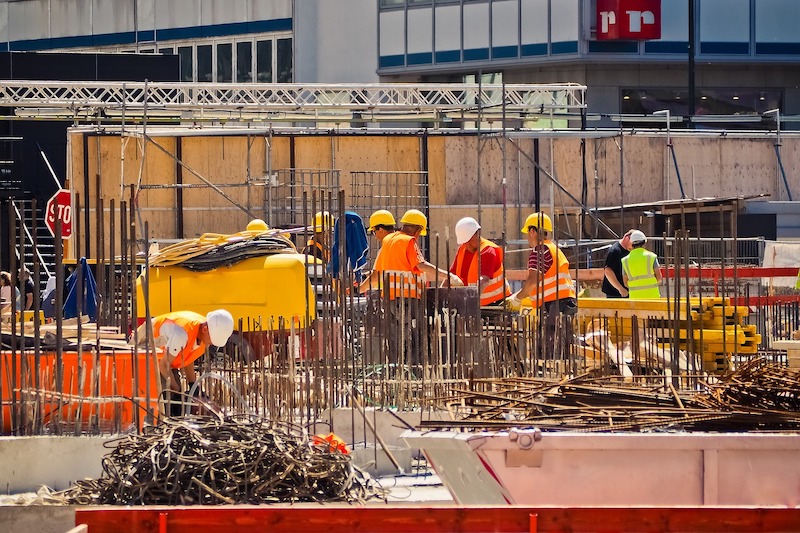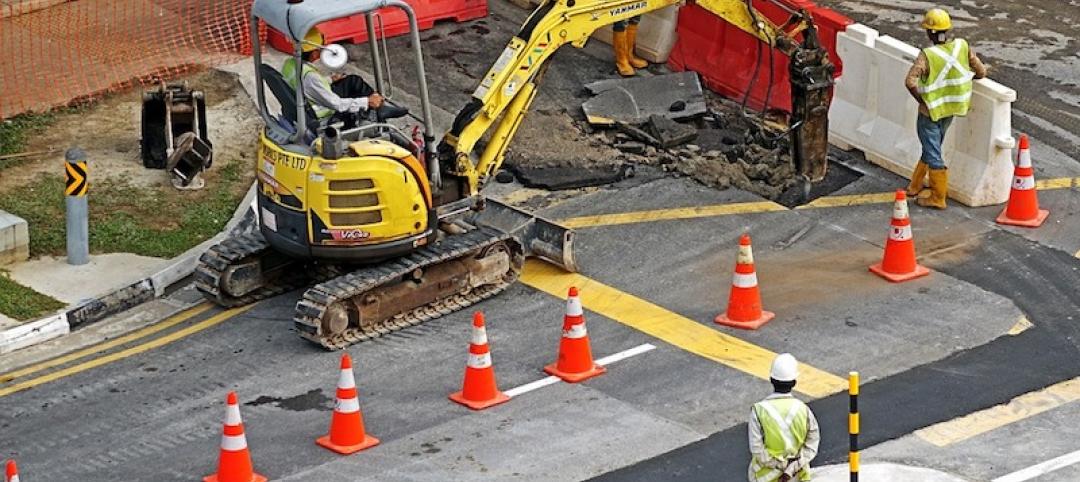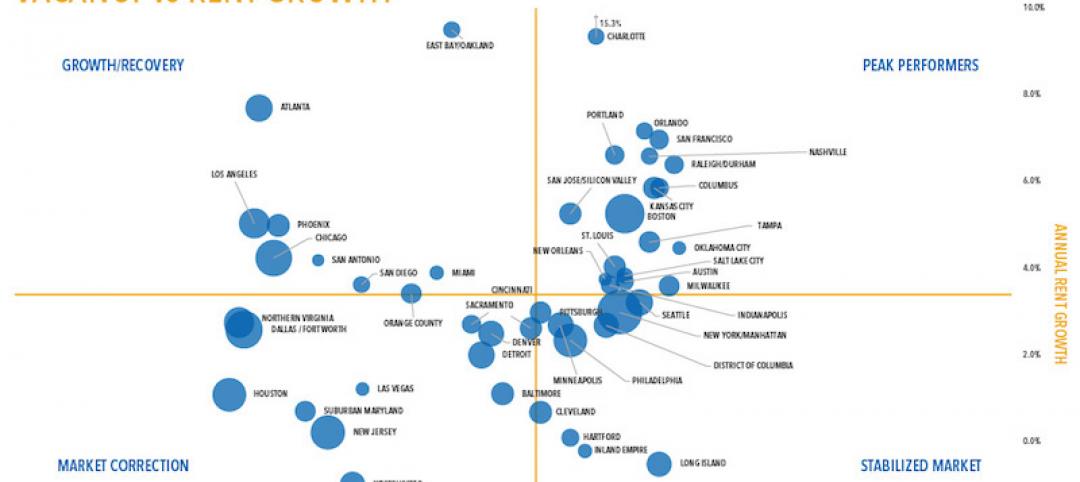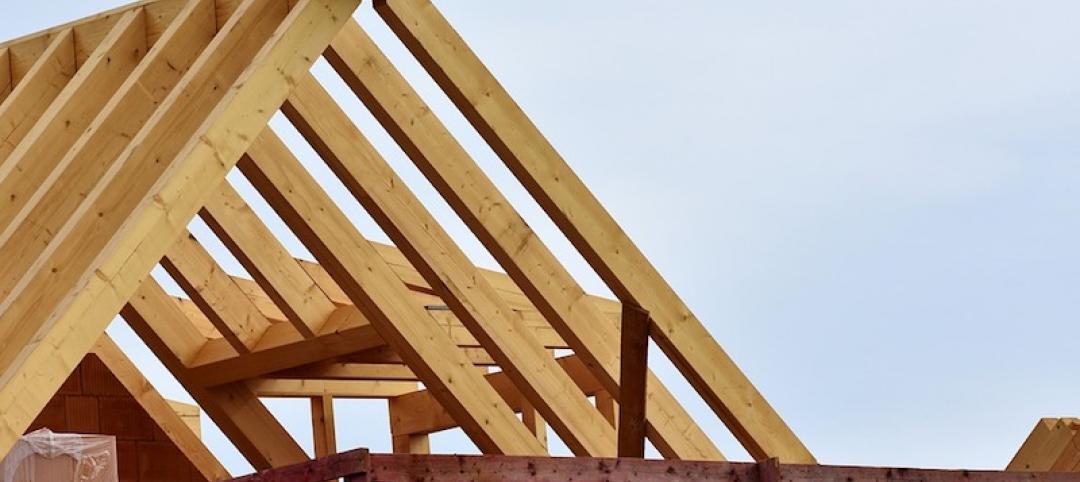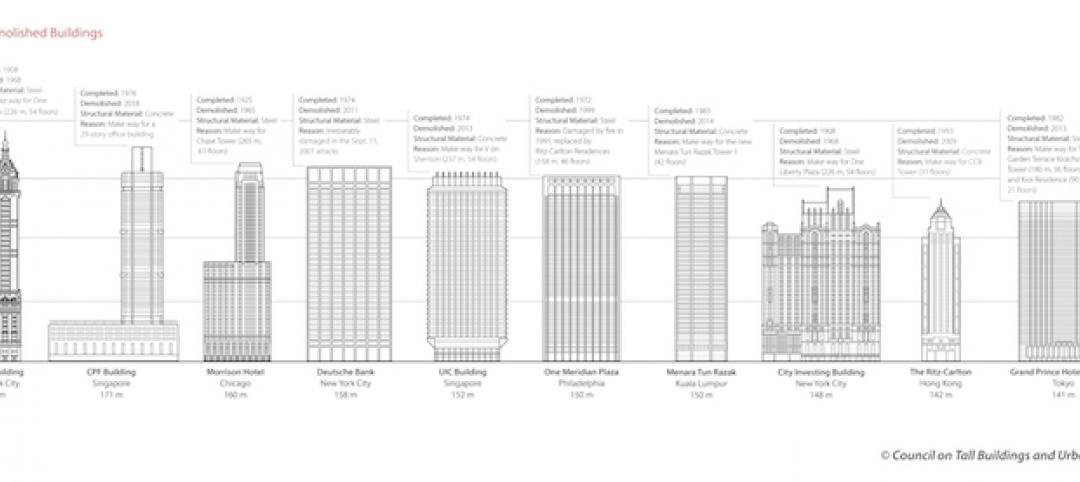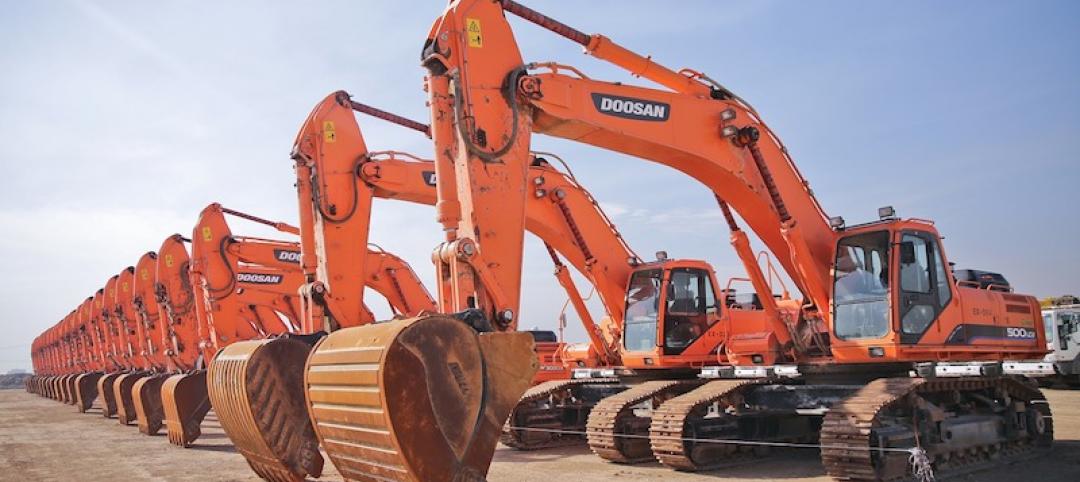The Marcum Commercial Construction Index highlights the continued spending weakness in nonresidential construction during the first nine months of the year and points to a significant anticipated change beginning in 2017. The change is being attributed to the major infrastructure-led stimulus package expected from the new Presidential administration. The national Construction Industry Practice group of Marcum LLP, a top national accounting and advisory firm, produces the quarterly index.
Overall nonresidential construction spending in September totaled $690.5 billion, down a slight 0.7 percent from a year earlier. Of the category’s 16 subsectors, bright spots included Office-related spending, which registered a whopping 23% gain to $70.7 billion; Lodging, up 20% year-over-year to $28.8 billion; Commercial construction, with a 6% gain to $71.7 billion; Amusement & Recreation, up 3.5% to $21.4 billion; and Educational construction, at $87.1 billion, a 3.3% percent increase.
The remaining 11 nonresidential subsectors all recorded fall-offs for the month, with the greatest declines in Sewage & Waste Disposal (-18.8%), Water Supply (-13.7%), Communication (-12.6%) and Transportation (-11.3%).
“Most construction firms report intense difficulty securing electricians, heating/cooling professionals, welders and carpenters, among others,” says Anirban Basu, Marcum’s Chief Construction Economist, in a press release. The construction worker unemployment rate in October was less than half of what it was five years ago, down to 5.7 % from 13.7 % in the same month of 2011. This compares to a national unemployment rate of 4.9% at the end of the 2016 third quarter.
Looking ahead, the Marcum report predicts that a stimulus package will put pressure on wages and inflation and lead to higher interest rates, which in turn will eventually hurt construction spending. “After a period of relatively intense construction spending due in part to a stimulus package, the nonresidential sector could face a sharp slowdown in construction spending thereafter,” it states.
For the complete Marcum Commercial Construction Index, visit www.marcumllp.com/industries/construction.
Related Stories
Market Data | May 30, 2018
Construction employment increases in 256 metro areas between April 2017 & 2018
Dallas-Plano-Irving and Midland, Texas experience largest year-over-year gains; St. Louis, Mo.-Ill. and Bloomington, Ill. have biggest annual declines in construction employment amid continuing demand.
Market Data | May 29, 2018
America’s fastest-growing cities: San Antonio, Phoenix lead population growth
San Antonio added 24,208 people between July 2016 and July 2017, according to U.S. Census Bureau data.
Market Data | May 25, 2018
Construction group uses mobile technology to make highway work zones safer
Mobile advertising campaign urges drivers who routinely pass through certain work zones to slow down and be alert as new data shows motorists are more likely to be injured than construction workers.
Market Data | May 23, 2018
Architecture firm billings strengthen in April
Firms report solid growth for seven straight months.
Market Data | May 22, 2018
Vacancies stable, rents rising, and pipeline receding, according to Transwestern’s 1Q US Office Market report
The Big Apple still leads the new construction charge.
Market Data | May 18, 2018
Construction employment rises in 38 states and D.C. from April 2017 to April 2018
California & West Virginia have biggest annual job gains, North Dakota has largest decline; California & Louisiana have largest monthly pickup, Indiana & North Dakota lead monthly drops.
High-rise Construction | May 18, 2018
The 100 tallest buildings ever conventionally demolished
The list comes from a recent CTBUH study.
Resiliency | May 17, 2018
Architects brief lawmakers and policy-makers on disaster recovery as hurricane season approaches
Urge senate passage of disaster recovery reform act; Relationship-building with local communities.
Market Data | May 17, 2018
These 25 cities have the highest urban infill development potential
The results stem from a COMMERCIALCafé study.
Market Data | May 10, 2018
Construction costs surge in April as new tariffs and other trade measures lead to significant increases in materials prices
Association officials warn that the new tariffs and resulting price spikes have the potential to undermine benefits of tax and regulatory reform, urge administration to reconsider.


